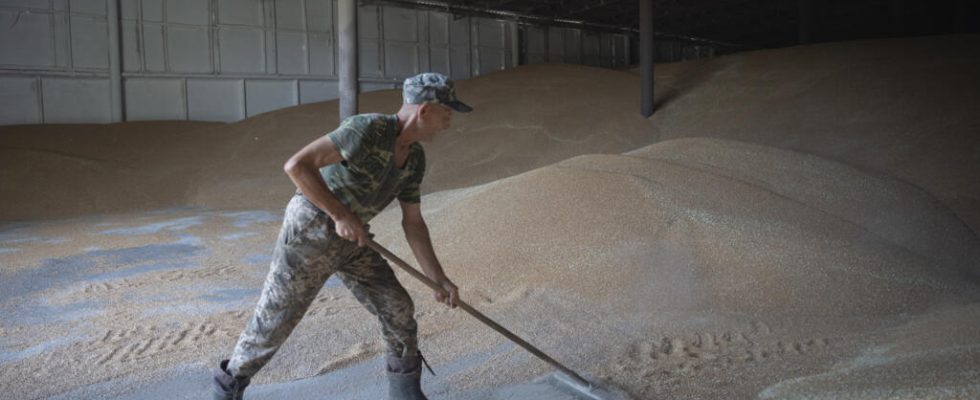The European Commission announced this Friday, September 15, that it would end the ban imposed by five EU states on the import of Ukrainian grain, in exchange for a commitment from Kiev to take measures to control the influx of grain. in neighboring countries.
3 mins
Brussels concluded at the end of April with five member states (Poland, Hungary, Slovakia, Bulgaria, Romania) an agreement allowing them to block the marketing of Ukrainian wheat, corn, rapeseed and sunflower on their soil in order to protect their farmers, provided that they do not prevent transit to other countries. ‘other countries.
Following the lifting of European Union customs duties in May 2022, these countries saw an influx of cereals at cut-off prices from Ukraine, but blocked on their soil due to logistical problems. Several had unilaterally banned imports to stem the saturation of their silos and the collapse of local prices, restrictions which Brussels then formally authorized and then extended until September 15 – to the great dismay of Kiev.
“ Thanks to these temporary measures, market distortions in these five states have disappeared “, and the improvement of logistical conditions has made it possible to increase the transport of cereals to other countries, the Commission indicated in a press release. “ As a result, the existing measures will expire today “, she announced.
Anxious to give assurances to Eastern countries, the European executive specifies that in return, kyiv undertakes to take measures to control the influx of cereals. “ Ukraine agreed to introduce legal measures – for example, an export licensing system – within 30 days to prevent surges » grain volumes, notes the press release. “ Until then, Ukraine will implement effective measures to control exports from September 16 » wheat, corn, sunflower and rapeseed « in order to avoid any market distortion in neighboring EU states “. kyiv must submit by Monday evening a “ action plan » in Brussels, which stands ready « to react to any unforeseen situation ”, but promises not to re-impose restrictions “ as long as the measures taken by Ukraine are in place and fully effective “.
Read alsoTurkey hopes to revive Ukraine grain deal
In disagreement, Hungary and Poland maintain restrictions
However, Hungary decided on Friday evening to unilaterally extend the ban on imports of Ukrainian grain, defying the European Commission. “ Hungary to close its borders to 24 Ukrainian products ”, compared to four previously, in order to “ protect the interests of our farmers », Announced on Facebook the Minister of Agriculture Istvan Nagy.
Poland, which had also announced on Tuesday its intention to unilaterally extend the ban on grain imports Ukrainians, made its decision official. kyiv then threatened to take the matter to the World Trade Organization (WTO) to demand compensation. The issue is particularly sensitive in Poland, where elections will take place in October 2023, and where the current populist right-wing government of the Law and Justice party enjoys strong support in agricultural regions.
These restrictions were fiercely criticized by part of the Twenty-Seven, led by France and Germany, who denounced distortions within the common market.
At the same time, the Europeans are trying to strengthen in all directions the routes for transporting Ukrainian grain to the rest of the world after the end of the agreement with Russia in mid-July to allow transit via the Black Sea. The EU has developed “solidarity” land and river corridors, through Poland and Romania, which have made it possible to transport 44.4 million tonnes of Ukrainian grain since the start of the war, or 60% of the Ukrainian production, in order to supply consuming countries, particularly in Africa.
Read alsoInterview – Ukrainian cereals: “The Danube is not enough to replace the Black Sea ports”
(With AFP)
